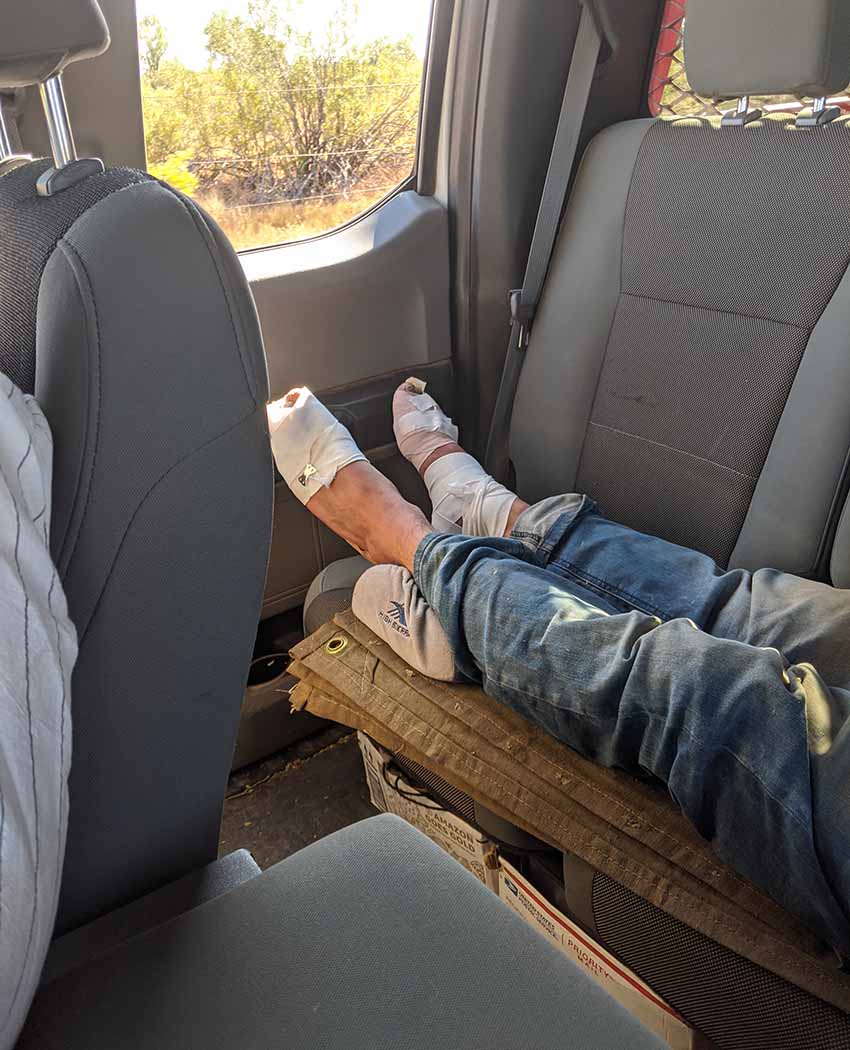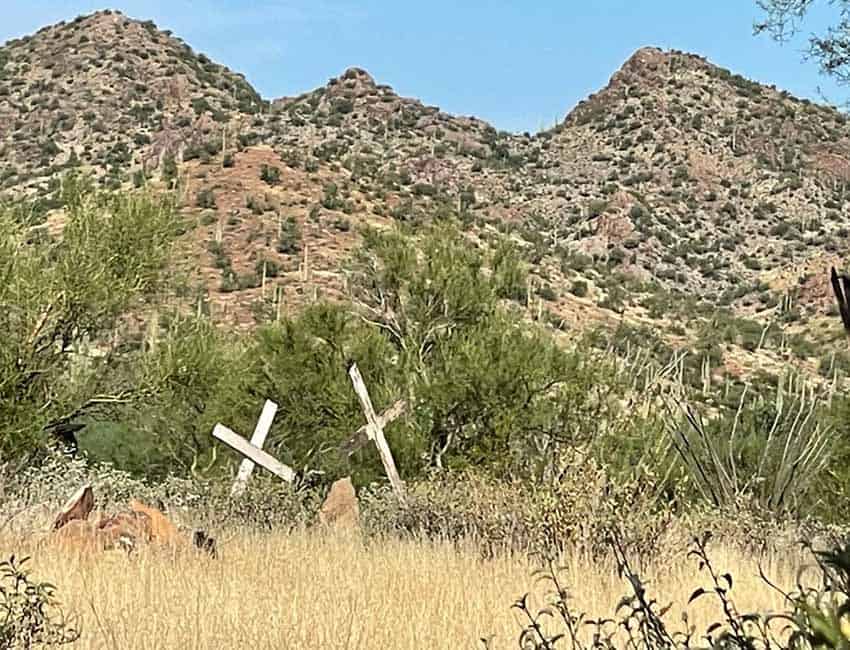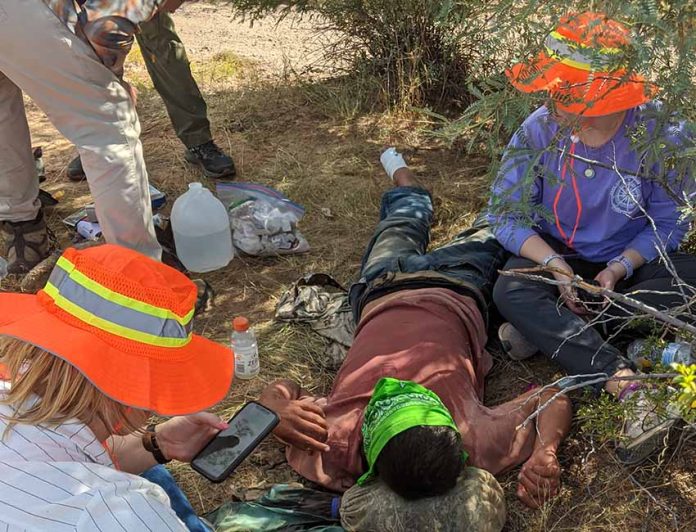On Saturday morning, our group, Battalion Search and Rescue, gathered at a small market in southern Arizona. Our mission for the day was that of a “general search” in an extremely remote area of the Sonoran desert. The search area bordered the Tohono O’Odham Nation, which has seen a massive increase in migrant traffic.
Battalion Search and Rescue is a self-trained group of unpaid volunteers from a wide range of backgrounds that searches the desert on average twice a month, looking for lost and missing migrants. Our mission is to save lives and/or provide closure for families and loved ones of people who have been lost while crossing into the United States. We regularly receive search requests from migrants’ families. We coordinate with park rangers, military, Border Patrol, reservations, the U.S. Bureau of Land Management and local law enforcement.
The battalion has located over 20 human remains in the last 12 months, but today, things would go differently.
On this day, our group consisted of a dozen residents of Arizona, many from small towns like Nogales and Patagonia. At 7 a.m., we exchanged fist bumps, parked sedans and loaded into a variety of 4×4 vehicles to begin our journey.
After driving more than an hour off-road, we reached a remote desert location and quickly prepared by loading packs with fluids, snacks and medical supplies. The battalion members all wear rugged footwear, high-visibility hats and carry at least one trekking pole. Snakes are always a hazard, as well as scorpions and a wide variety of spiky desert plant life.

After forming a search line and confirming everyone’s readiness, the volunteers headed out, our two-way radios buzzing with a range of chatter. To keep our spirits up, there was, as always, a healthy dose of good-natured ribbing.
A new volunteer held down the left flank today. Terry Stanford and two of her good friends were new to the battalion and considering making a commitment as long-term volunteers. Their decision would soon be solidified.
“There is someone here!” she suddenly announced.
Another volunteer warrior, as the group likes to call their members, instructed them to wait for backup and approach slowly. Their discovery was a barely 19-year-old youth from Central America who had dragged himself over a mile to the shade of a small tree, where he had remained for several days and was now clinging to life.
In a soft and cracking voice, he explained how he was left behind by his group due to blisters and other injuries. He had been robbed of his possessions except for his cell phone, which was similarly clinging to life, showing only 2% battery life on its sun-bleached screen.
Mostly without speaking, volunteers fell into their respective roles. A motivated pair were chosen to run several miles for one of the vehicles with more water and supplies. Others combed the surrounding area, while those with medical training attended to the young man’s wounds and other needs.

A few battalion members with law experience discussed the legal concerns regarding attending to and potentially transporting the young man. After a failed attempt to contact Border Patrol due to a lack of cell phone service in this remote part of the desert, the decision was made to transport him ourselves.
The drive out of the desert was slow and painful for the young man, but he successfully arrived at an emergency room near Tucson. With his phone partially charged during the drive, he tearfully reached worried family thousands of miles away.
He spoke to us of only making a few dollars a day back home and yet still being extorted by criminal gangs. His plan was to somehow get to Kentucky, where he possibly had family, work and “a new future” waiting.
After getting this young man the help he needed, the battalion utilized a network of contacts and alerted nearby shelters like the Kino Border Initiative Migrant Outreach Center — which is located just across the border from Nogales, Arizona, in Nogales, Sonora — to be on the lookout for him. They will carefully monitor his movements and progress.
Extreme conditions in the Arizona desert can range from freezing weather to 120 F temperatures, and the terrain is often rough and rugged. Our group’s searches locate an average of two human remains every month; they can range from skeletal to a few hours old. The sooner these remains are found, the better the chance for identification, repatriation and proper burial.
We are the Battalion Search and Rescue.
And we search for the lost but not forgotten.
James R. Holeman is the founder of Battalion Search and Rescue. For more information on the organization, visit their website or reach them by email at [email protected].
